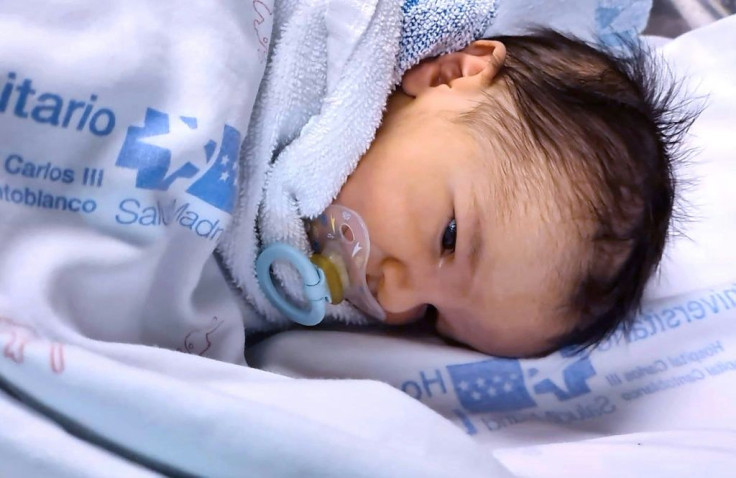Some Good News: Newborns Seem Spared Mom's COVID-19

Between January and June, researchers have published more than 23,000 unique articles relating to COVID-19. But few, said the authors of a new study about newborn babies and their mothers, have addressed this question: Can pregnant women infect their babies?
These researchers looked at case files for 101 newborns delivered to mothers with COVID-19 at two New York City hospitals (Columbia University Irving Medical Center and NewYork-Presbyterian Morgan Stanley Children's Hospital) between March 13 and April 24, 2020. They published their results Oct. 12 in JAMA Pediatrics .
Can Children Be Born With COVID-19?
The concern, said the authors, is that other types of viruses can be passed from mother to her newborn.
So far, the evidence suggests that it is unlikely a woman who tested positive for COVID-19 would pass the infection to her newborn. Of the infants studied, only two were infected with the virus. The researchers could not confirm whether the infection occurred before or after birth, but all 101 of the babies remained healthy during a two-week followup period.
What About Bonding?
Close contact, especially skin-to-skin, has been shown to promote healthy development in infants. Could this be allowed under COVID-19 safety standards?
The study results showed no problem, so long as the right safety measures are in place. Senior author Cynthia Gyamfi-Bannerman, MD, a maternal-fetal specialist and professor in obstetrics and gynecology at Columbia University Vagelos College of Physicians and Surgeons, shared the team’s methodology in a news release:
"During the pandemic, we continued to do what we normally do to promote bonding and development in healthy newborns, while taking a few extra precautions to minimize the risk of exposure to the virus."
Those “extra precautions” were familiar ones. Both direct contact and breastfeeding were permitted, but mask-wearing was required, alongside washing hands and breasts before contact. Social distancing measures were also put in place: Infants who stayed in their mothers’ rooms rested in cribs spaced six feet away from the parent.
The study questioned earlier guidance that has warned against parent-child contact out of an abundance of caution. Lead author Dani Dumitriu, MD, PhD, assistant professor of pediatrics in psychiatry at the Columbia medical school, and a pediatric newborn hospitalist at NewYork-Presbyterian, had concerns about this cautious approach.
“These recommendations were made in the absence of data on rates of mother-to-newborn SARS-CoV-2 transmission and are based on experience with mother-newborn transmission of other infectious diseases,” she stated in the press release. “… Some of the recommendations conflict with what we know about the developmental benefits of early breastfeeding and skin-to-skin contact. Our study shows that these measures may not be necessary for healthy newborns with COVID-positive moms."
The Take Home
While COVID-19 is an extremely contagious disease, recent research suggests that the risk of a mother passing it to her newborn is minimal. The same safety measures used in daily life should be enough to mitigate any risk.
As Dr. Gyamfi-Bannerman put it: "Our findings should reassure expectant mothers with COVID-19 that basic infection-control measures during and after childbirth--such as wearing a mask and engaging in breast and hand hygiene when holding or breastfeeding a baby--protected newborns from infection in this series."
Published by Medicaldaily.com



























